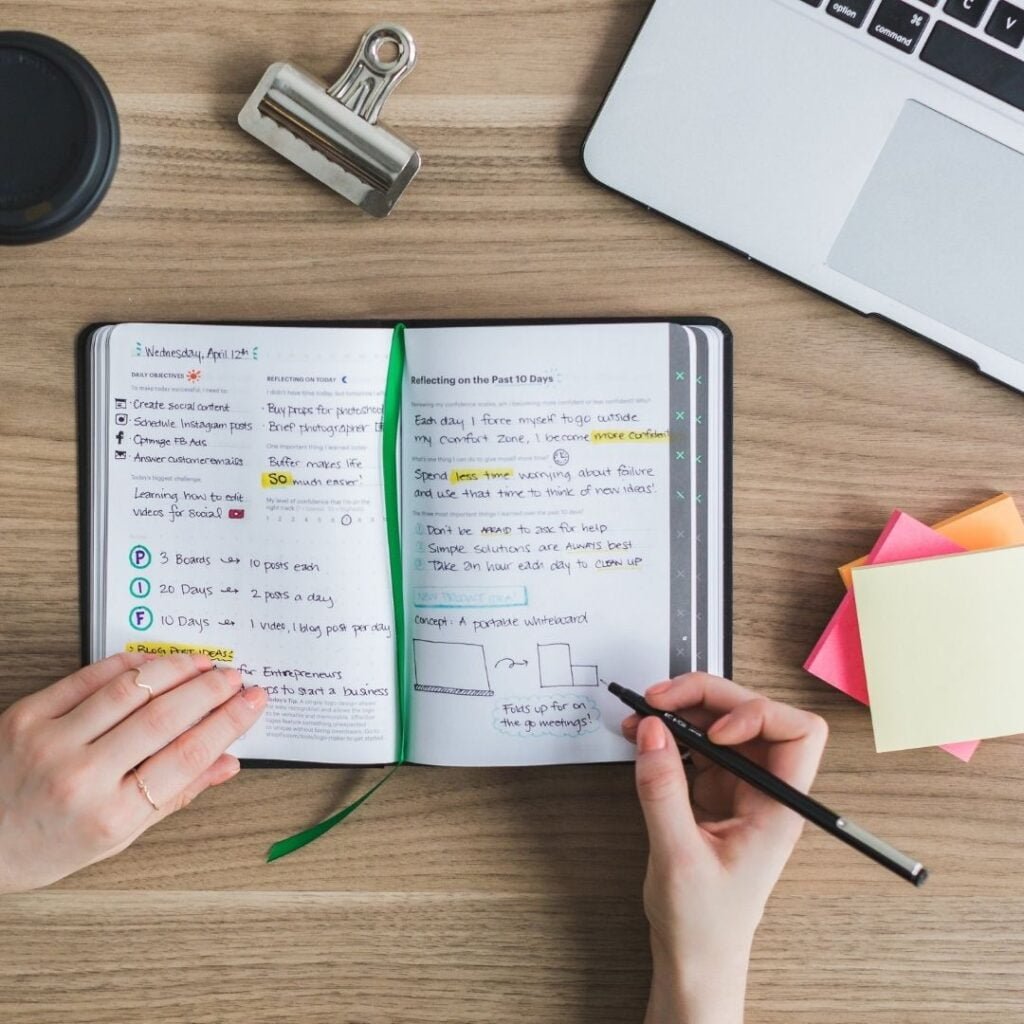The anticipation of upcoming exams can be nerve-wracking. The pressure is mounting, and there’s a lot to cover in so little time. The stress further aggravates the problem and prevents you from retaining the material you’re studying. While some are fortunate to memorize whatever they read, most students struggle in this aspect. This can take a toll on your mental and physical well-being. But, it doesn’t really have to be this challenging.
Few students realize that there are specific ways to learn well and learn fast. There are many tricks and tips that can help you complete your syllabus in time, and achieve excellent scores. So, how to study fast and remember well for exams?
You can not only learn fast for exams but also ace it if you study right before bedtime. Break your syllabus into chunks and use mnemonics to memorize tricky concepts. Write your own notes and take frequent tests to challenge yourself. Don’t forget to block out the distractions and voice out whatever you read.
Do these tips really work? How will they help you prepare for exams and, more importantly, how to study fast for exams using this strategy? Studying won’t seem so challenging if you have little tricks up your sleeve. Here’s what you need to know.
How To Study Fast And Remember Well For Exams
Let’s face it. There are no shortcuts to acing your exams. If you want to score well, you have to study hard. But it’s not only about the time you put in. You have to be smart with your strategy and learn memory techniques for better study. So without further ado, let’s jump right into it and find out how to learn fast for exams.
1. Studying Before Bedtime
Contrary to popular belief, it’s actually good to study before retiring for the day. This enables you to retain information longer. While you sleep, your brain is continuously working, storing new memories and transferring them to long-term storage.
Indeed, studies have shown that it’s pretty rewarding to tackle the most challenging subjects before bedtime. This leads to better memory retention and recall. It’s quite simple to understand if you think about it. During the day, your mind is drowned by all the new data. But that’s not the case as you sleep. Your brain gets adequate time to process whatever you learn without any distractions. This makes it one of the most effective memory techniques for better study.

2. Break Your Syllabus Into Chunks
Yes, your syllabus is complex and extensive. Learning it can be monotonous. It’s so easy to get distracted. But if you break it into multiple small pieces, you will be able to remember them a whole lot faster. Take one step at a time. Ensure that you have mastered one part completely before moving onto the next one. Just like this blog post is broken into bits of data that make it more interesting and easier to read/remember.
Remember, there’s only so much that the brain can learn at a time. You don’t want to saturate your mind with excessive information. This will only lead to you panicking right before the exams, which wouldn’t do any good. So break up the data and learn fast for exams easily.
3. Use Mnemonics
Have trouble remembering complex information during exams? You aren’t the only one. One of the memory techniques for a better study that works quite well, in this case, is using mnemonics. You can use common ones or even make up your own acronyms. Whatever helps you retain the information is fine.
There are plenty of choices in this regard. You can make up connection mnemonics wherein you connect something you know to what you are studying. Make up a song with your study information. Think of name or expression mnemonics. The goal is to make it easier for your brain to recall complex information. And it is up to you to determine which of these mnemonic techniques enable you to learn fast for exams.
4. Write Your Own Notes
This isn’t hearsay. Indeed, people retain things that they write down. So make it a point to write your own notes. Once you have completed a topic, write everything you know about it. And let’s be clear. By write, we mean, use paper. Taking notes on the laptop wouldn’t really have the same effect.
When you write the notes, your brain has to work quite hard to read the information, process and translate it. This makes it even less likely that you will forget it anytime soon.
You can make things more engaging by using color coding for your notes. This keeps the interest alive and also makes it easier for you to understand your notes faster. There’s a reason that so many people consider it one of the best ways to remember well for exams.
5. Speak Out Your Notes And Watch Videos
It’s easier to retain information presented in video format. Visuals help your brain learn fast for exams.
Additionally, read out loud as you study. This might sound ridiculous, but it actually works. The brain translates what you read into speech as you voice it out. This makes it easier for you to recall the information later.
6. Challenge Yourself
This is undoubtedly one of the most effective yet underused ways to remember well for exams. If you want to ensure that you retain the information, take tests to find out how much you know. Write both the questions and answers and figure out what areas you lack in. This will not only help you in learning but also prepare you for the upcoming exam.
You can even find practice sessions online for assistance. The most you challenge yourself, the most motivated you will be to improve your learning and master your syllabus.
7. Get Rid Of The Distractions
If you really want to know how to study fast for exams, this is something you have to keep in mind. Even a minor distraction can break the flow and affect your study schedule. So make it a point to study somewhere with zero distractions. Stop incoming messages, ensure that your friends, family and pets don’t interrupt your studying session and put away anything you think can affect your focus (looking at you iPad).

Final Words
There are many ways to remember well for exams, including spaced repetition, active reiteration and a lot more. The important thing is not to panic. Yes, it’s vital to do well in your exams but don’t let the pressure crowd your mind. This will do more harm than good. Don’t hesitate to take a break when you feel overwhelmed. This only gives your brain some time to recover.



